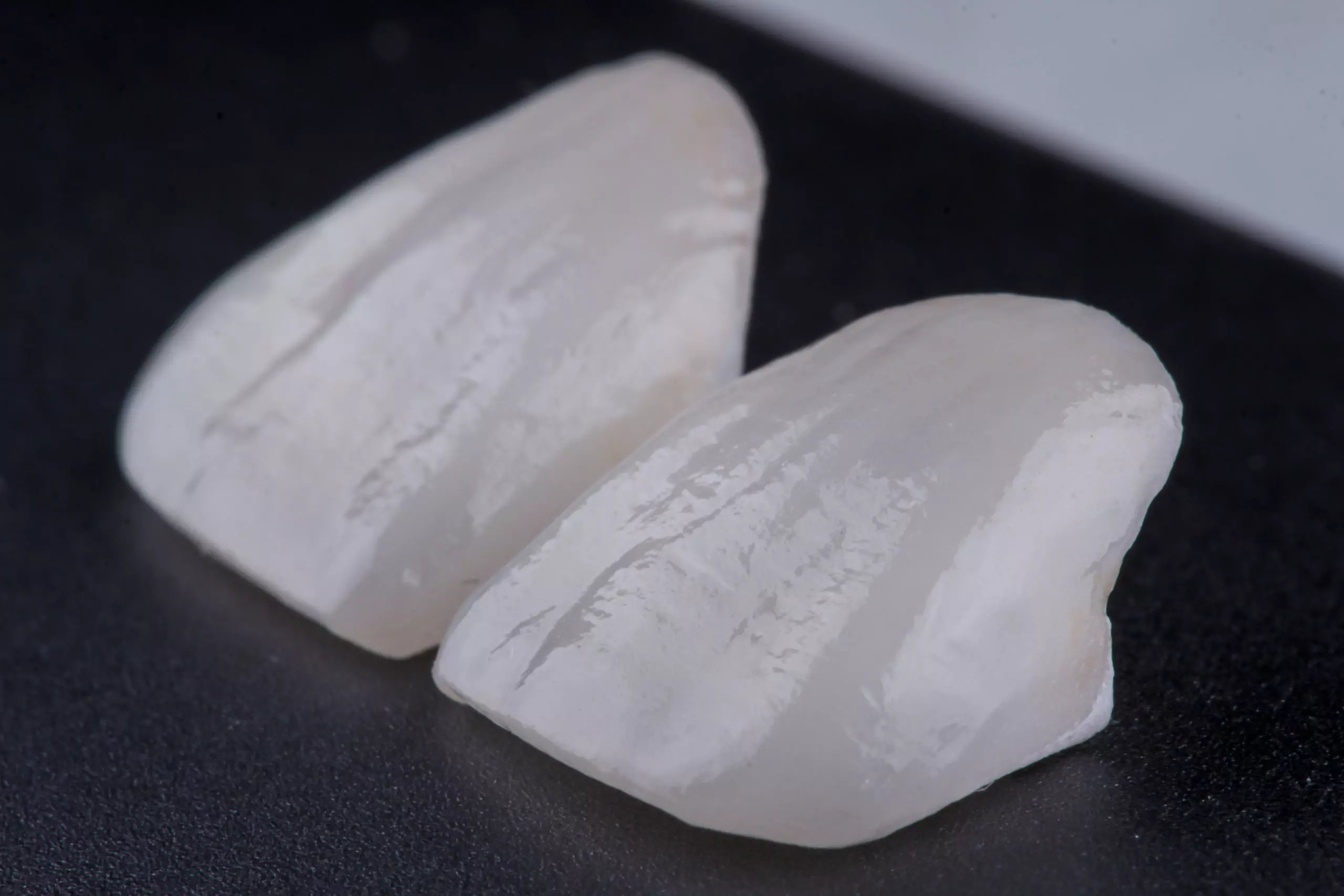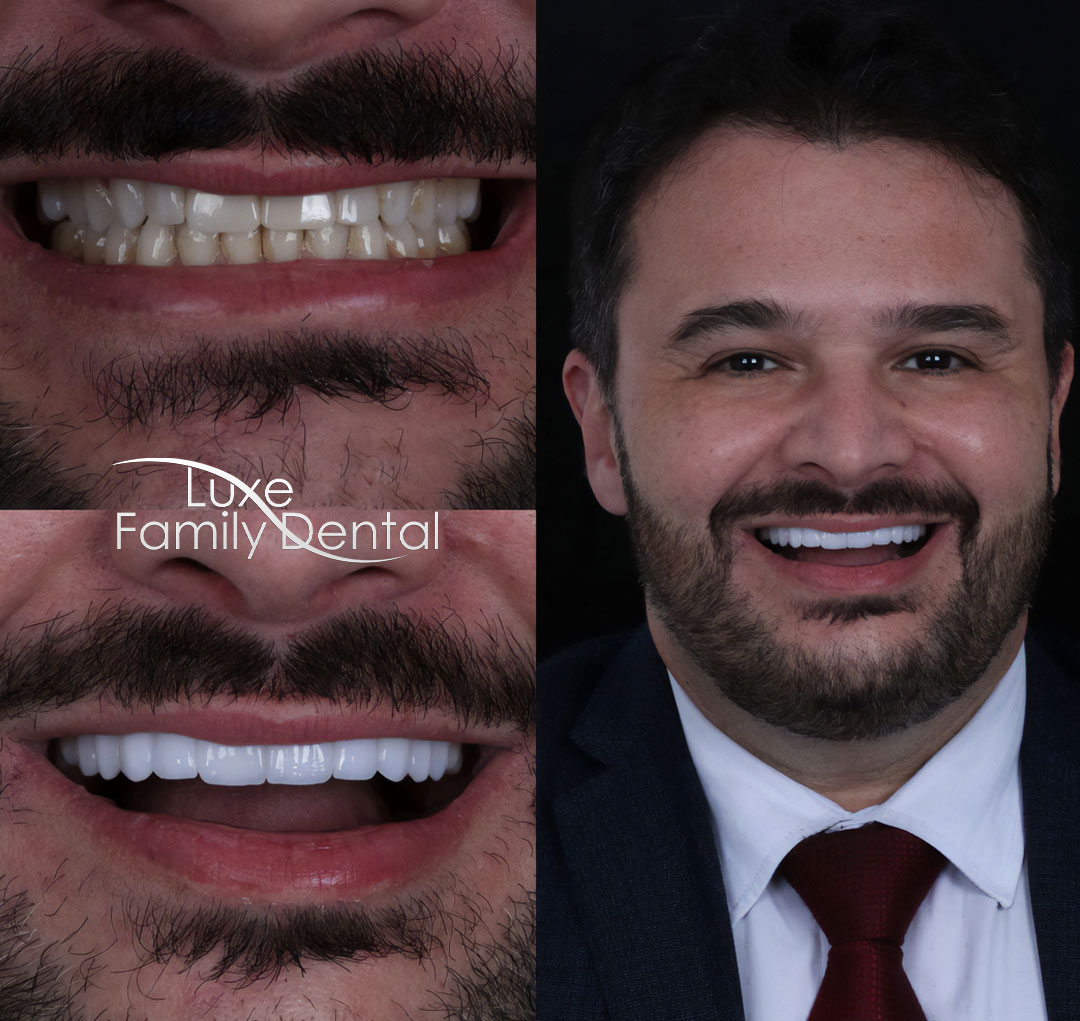Most Dental Insurance Cover Veneers as they are considered a cosmetic procedure. Coverage varies greatly and may depend on individual policies and providers.
Dental veneers can transform your smile, providing a solution for chipped, misshapen, or discolored teeth. They consist of thin shells crafted from porcelain or composite materials, designed to cover the front surface of teeth and improve aesthetics. Usually, dental insurance focuses on treatments that are deemed necessary for oral health, such as cleanings, fillings, and emergency procedures.
Since veneers are typically elective and aesthetic, insurance companies are less likely to consider them a coverable expense. Nevertheless, it’s essential to review your specific dental plan or discuss with your insurance provider to determine if there is any provision for partial coverage or payment plans that may make veneers a more affordable option.

Credit: medium.com
Introduction To Dental Veneers
Dental veneers are custom-made, thin coverings. They attach to the front surface of teeth. Veneers improve your smile’s appearance. They are made from porcelain or resin composite materials. They mimic your natural teeth. People choose them for a uniform and brighter smile.
Distinctive Types Of Veneers
Veneers come in two main types: porcelain and composite. Porcelain veneers are strong and long-lasting. They resist stains better than resin. Composite veneers are usually less costly. They can often be applied in one visit. Both types aim to enhance tooth appearance, fixing issues like discoloration, chips, and gaps. [Does Dental Insurance Cover Veneers.]
Typical Uses For Veneers
Veneers serve several dental needs. They are often used to fix:
- Chipped teeth – restore natural tooth shape
- Gaps between teeth – reduce space for a smooth, even smile
- Stained or discolored teeth – provide a whiter, brighter appearance
- Worn down teeth – rebuild tooth length and surface
- Misaligned teeth – create a neatly aligned look
The Basics Of Dental Insurance
Understanding dental insurance is the first step to knowing if it covers veneers. It pays for some dental care services and procedures. It’s different from medical insurance. Now, let’s explore standard coverage and differences in insurance plans. [Does Dental Insurance Cover Veneers.]
Standard Coverage Offered By Dental Plans
Dental plans often cover procedures in three categories:
- Preventive: Cleanings, exams, and X-rays.
- Basic: Fillings, root canals, and extractions.
- Major: Crowns, bridges, and sometimes, dentures.
Veneers might not be in these categories. They are often seen as cosmetic treatments. Most basic dental plans do not cover cosmetic procedures.
Key Differences Between Medical And Dental Insurance
| Medical Insurance | Dental Insurance |
|---|---|
| Covers a broad range of health services. | Focuses on dental care and treatments. |
| Annual deductibles are generally higher. | Deductibles are smaller but have annual maximums. |
| Often includes coverage for emergency procedures. | May not cover dental emergencies to the same extent. |
The difference lies in the details. Medical insurance can have a wide net; dental usually has clear limits. For veneers, medical insurance won’t help. Dental might, but it’s rare and often limited.
Cracking The Code: Veneers And Insurance Eligibility
Peeling back the layers of dental insurance can be tricky, especially when it comes to veneers. Understanding if your insurance plan will help foot the bill for this popular dental treatment is crucial. Dive into the details with us in ‘Cracking the Code: Veneers and Insurance Eligibility’.
Cosmetic Vs. Restorative: A Crucial Distinction
When seeking insurance coverage for veneers, knowing the difference between cosmetic and restorative procedures is key. Most dental insurances cover treatments that are deemed necessary for the health of your teeth. This usually includes procedures that restore a damaged tooth’s functionality. Cosmetic procedures, which are meant to improve appearance, often aren’t covered. Let’s break it down: [Does Dental Insurance Cover Veneers.]
- Cosmetic Procedures: Aim to enhance smile aesthetics
- Restorative Procedures: Focus on fixing dental issues for better health
Some insurances might cover veneers if they fix a health issue, but not if it’s just for a better look. Always check your plan.
Insurance Terms And Conditions For Veneers
Each insurance has a set of terms and conditions that govern what they will and won’t pay for. Here’s what to look for in your policy: [Does Dental Insurance Cover Veneers.]
| Policy Section | What It Tells You |
|---|---|
| Deductibles | How much you pay before insurance kicks in |
| Maximum Limit | Most insurance will be paid in a year |
| Exclusions | Treatments not covered, like certain veneers |
| Waiting Period | Time before coverage starts for veneers |
| Pre-Approval | Needed before getting veneers |
Check these sections in your policy. Sometimes, veneers for restoring a tooth’s function may be part of the coverage. But for a stand-out smile, it may be out-of-pocket. Always consult with your dentist and insurer to understand your coverage. [Does Dental Insurance Cover Veneers.]
Navigating Insurance Policies
Understanding dental insurance policies can be like finding your way through a maze. With the right guide, you can determine if your plan covers procedures like veneers. Let’s break down the complex language of insurance plans. This will help you know what to expect concerning coverage for veneers. [Does Dental Insurance Cover Veneers.]
How To Read Your Dental Insurance Plan
Know your benefits. Start by reviewing your plan’s Summary of Benefits.
Identify the service categories: preventive, basic, and major procedures.
Check the percentage of coverage for each category.
Plans often cover 100% of preventive care but less for other services.
Look at the annual maximum. This is what the plan pays yearly.
Understand the terms. ‘Cosmetic’ procedures may have different rules.
Check for waiting periods. Some services require time before you’re eligible.
Contact customer service for unclear terms or doubts.
Common Exclusions And Limitations
Most dental insurance policies have a list of exclusions and limitations. Here’s what to watch for regarding veneers: [Does Dental Insurance Cover Veneers.]
- ‘Cosmetic’ vs. ‘Restorative’: Veneers are often labeled cosmetic.
- Annual limits: They might affect how many veneers you can get covered.
- Pre-existing conditions: These may not be covered.
- Material restrictions: The type of veneer could impact coverage.
Keep these points in mind to avoid surprises. Reach out to your insurer for specifics on veneers.
Case Studies: Veneers Insurance Coverage
Exploring real-life experiences can shed light on dental insurance and veneer coverage. Many wonder if their plans will bear the cost of this cosmetic treatment. This section dives into personal stories about veneer insurance claims. [Does Dental Insurance Cover Veneers.]
Success Stories Of Covered Veneer Procedures
Case studies show us that obtaining insurance coverage for veneers is possible. Some individuals have celebrated victories with their insurance companies.
- John secured partial coverage after proving veneers were essential for structural reasons.
- Emily leveraged a comprehensive dental plan that catered to cosmetic enhancements.
- Mark’s persistent communication with his insurer led to a customized coverage plan for his veneer needs. [Does Dental Insurance Cover Veneers.]
Challenges Faced And Overcome By Patients
Success often comes with its set of hurdles. Patients share their struggles to secure veneer coverage. [Does Dental Insurance Cover Veneers.]
| Patient | Challenge | Outcome |
|---|---|---|
| Lisa | Initial denial for coverage as cosmetic. | Appealed and succeeded with a detailed dental report. |
| Ted | Lack of adequate information in the policy. | Sought expert advice and negotiated terms with the insurer. |
| Nina | Insurance offered minimal reimbursement. | Found a supplemental plan that provided additional coverage. |
Maximizing Your Dental Insurance Benefits
Maximizing Your Dental Insurance Benefits often feels like navigating a complex labyrinth. For those considering dental veneers for a brighter smile, the journey becomes even more intricate. Dental insurance can feel like an elusive ally. Sometimes, though, it might cover a portion of the cost related to dental veneers. Understanding the potential coverage and how to approach your insurance plan is crucial. [Does Dental Insurance Cover Veneers.]
Strategies For Gaining Optimal Coverage
Unlocking the maximum potential of dental insurance requires strategic thinking. First, know your policy details. Look for clauses related to cosmetic procedures. Compare costs from various providers. Some may offer services at rates more favorable for the coverage you have. Learn if a payment plan could bridge the gap insurance may not cover. Lastly, consider other financial tools at your disposal, like health savings accounts.
- Review policy inclusions and limitations.
- Consult with several dentists to find the best rate.
- Check for payment plans that dentists might offer.
- Explore Health Savings Accounts (HSAs) or Flexible Spending Accounts (FSAs).
The Role Of Pre-authorization Requests
Pre-authorization is a key step in utilizing your dental insurance effectively for veneers. This process involves submitting a treatment plan to your insurer before the procedure. Your dentist can help you with this. They send details about the necessity and cost of the veneers to the insurance company. The insurer then confirms whether the procedure is covered and to what extent. Always seek pre-authorization to avoid surprise expenses. [Does Dental Insurance Cover Veneers.]
- Consult with your dentist about the need for veneers.
- Submit a detailed treatment plan to your insurer.
- Wait for the insurer’s response on coverage details.
Alternative Financing Options For Veneers
Exploring financing options for veneers can help make your dream smile more attainable. Dental insurance might not cover cosmetic procedures like veneers. Yet, this doesn’t mean your options are limited. Let’s delve into smart solutions to finance your veneers without insurance.
Dental Discount Plans As A Viable Solution
Dental discount plans offer an alternative to traditional insurance. They are not insurance policies but provide discounted rates. [Does Dental Insurance Cover Veneers.]
- Pay an annual or monthly fee
- Get a discounted rate on veneers
- No annual limits or deductibles
Exploring Payment Plans And Dental Credit Lines
Payment plans spread the cost of your veneers over time. Dental credit lines function like credit cards. [Does Dental Insurance Cover Veneers.]
They offer:
| Feature | Benefit |
|---|---|
| Flexible monthly payments | Manageable budgeting |
| Immediate access to funds | Start treatment right away |
Always read the fine print and understand interest rates.

Credit: clearchoicedental.com.au
Take Control: Planning For Veneers
Embarking on the journey to enhance your smile can be thrilling. Veneers serve as a miracle solution for many dental imperfections, but planning financially for them is crucial. Let’s break down how to strategically prepare for this investment in your smile’s future.
Consulting With Your Dentist And Insurance Provider
The first step towards veneers is an open conversation with your dentist. Understand the cost, procedure, and your dental needs deeply. It’s essential to know that insurance plans vary widely. Not all include veneers, as they are often classified as cosmetic. During this initial phase, pose these critical questions to your insurer: [Does Dental Insurance Cover Veneers.]
- Does my plan cover cosmetic procedures like veneers?
- What percentage of the cost will be covered?
- Are there alternatives that my insurance might cover partially or fully?
Securing this information lays a solid foundation for the financial aspect of your veneer journey.
Saving For Veneers Through Health Savings Accounts (hsas)
If your insurance provider gives the nod for only partial coverage or none at all, don’t lose heart. A Health Savings Account (HSA) can be your financial ally. Here’s how HSAs can be a game-changer for you: [Does Dental Insurance Cover Veneers.]
| Benefits | Description |
|---|---|
| Tax advantages | Contributions are pre-tax, reducing taxable income |
| Roll-over | No ‘use it or lose it’ — funds roll over yearly |
| Versatility | Use funds for various medical expenses, including dental |
Remember, a HSA necessitates that you have a high-deductible health plan (HDHP). Confirm your eligibility and start allocating savings towards your veneers. You’ll smile at your forethought when it’s time to proceed with the treatment without undue financial stress.
Final Thoughts On Dental Veneers Insurance
As we wrap up our exploration of dental veneer insurance, it’s clear that understanding coverage possibilities is vital. Dental insurance varies widely, with veneers often occupying a gray area in coverage plans. With this in mind, let’s consider the cost-benefit balance and the long-term investment in your smile. [Does Dental Insurance Cover Veneers.]
Balancing Costs And Benefits
Assessing the costs against the benefits of dental veneers is key. Veneers can considerably enhance the aesthetics of your smile, boosting self-confidence. However, they come at a price. Verify what portions, if any, your insurance covers. [Does Dental Insurance Cover Veneers.]
Often, veneers are seen as cosmetic procedures, which most basic dental insurance plans do not cover. This doesn’t rule out the possibility of partial coverage with more comprehensive plans. Examine your policy’s fine print or reach out to your insurance provider for clarification.
- Check for cosmetic procedure clauses
- Investigate partial coverage options
- Consider alternate financing methods
Considering The Long-term Investment In Your Smile
Investing in veneers is more than a one-time cost. It’s an investment into a lasting smile. Veneers, when properly cared for, can last upwards of a decade, cementing their value over time.
Keep in mind that maintenance costs will occur. Insurance may not cover these, so a future financial plan is crucial. Review any insurance policies for potential future benefits and set aside savings for upkeep. [Does Dental Insurance Cover Veneers.]
| Investment Aspect | Consideration |
|---|---|
| Longevity of Veneers | 10+ years of care |
| Maintenance Costs | Plan for routine care expenses |
| Future Insurance Benefits | Review policies for potential coverage |
| Savings Plan | Set aside funds for future needs |
Remember, investment in dental health impacts overall well-being. While insurance may not cover all expenses, the value of a confident, healthy smile can be immeasurable.

Credit: toorakdentalstudio.com.au [Does Dental Insurance Cover Veneers.]
Frequently Asked Questions On Does Dental Insurance Cover Veneers
How Do People Afford Veneers?
People afford veneers through various payment methods, including dental insurance, payment plans, savings, or financing options. Some also opt for discounts offered by dental clinics.
What Happens To The Teeth Under Veneers?
Teeth under veneers typically remain healthy, but dentists may remove a small layer of enamel for proper veneer fit. Regular oral hygiene maintains the underlying tooth health.
How Many Teeth Can Be Covered With Veneers?
Veneers can cover any number of teeth, ranging from a single tooth to a full set, typically up to 20 teeth – the visible ones in your smile. [Does Dental Insurance Cover Veneers.]
Do Veneers Cover Existing Teeth?
Yes, dental veneers are designed to cover the front surface of existing teeth to improve their appearance. [Does Dental Insurance Cover Veneers.]
Conclusion
Understanding dental insurance coverage for veneers can be complex. Each plan varies, so reviewing your policy is key. Remember that veneers are often seen as cosmetic. Hence, they’re not typically covered. Always consult with your dentist and insurance provider to clarify your options and crunch the numbers for potential out-of-pocket costs.
Protect your smile with informed decisions.

I’m based in the USA, Canada, Australia, and the UK—four vibrant countries with rich educational landscapes and diverse news ecosystems.
Feel free to adjust and personalize this introduction to reflect your unique voice and experiences. Happy writing! 📝✨

